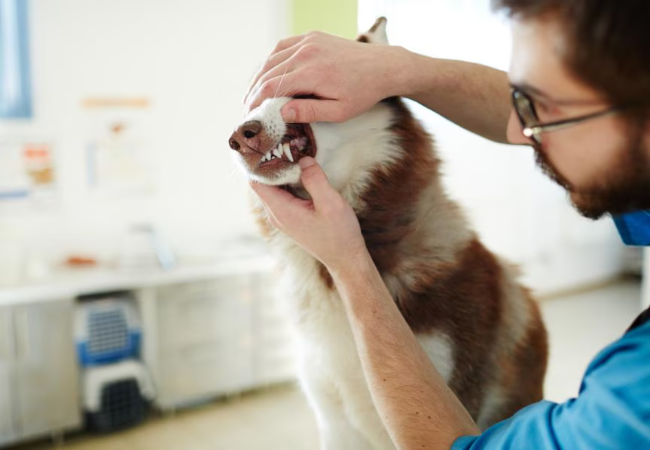Canine Oral Cavity Tumors in 2025: Vet-Backed Guide 🦷🐶

In this article
Canine Oral Cavity Tumors in 2025: Vet-Backed Guide 🦷🐶
By Dr. Duncan Houston BVSc
📌 What Are Oral Cavity Tumors?
Oral tumors in dogs are abnormal growths in the mouth—on gums, tongue, lips, tonsils, or jawbones. They can be benign or malignant, and most are detected late due to subtle signs.
🧬 Common Types
- Benign: Peripheral odontogenic fibromas, epulides, ameloblastomas—slow-growing but may damage surrounding bone.
- Malignant: Melanoma, squamous cell carcinoma (SCC), fibrosarcoma, osteosarcoma—aggressive and capable of bone invasion and spread.
👀 Signs to Watch For
- Visible mass or swelling in the mouth
- Bad breath, drooling, bleeding, ulceration
- Difficulty chewing, swallowing, or food dropping
- Loose teeth, facial swelling, weight loss
🩺 Diagnosis Process
Your vet will perform:
- Visual exam and palpation of the mouth and lymph nodes
- Imaging (dental X‑rays, CT) to assess bone and spread
- Fine‑needle aspirate or biopsy for definitive diagnosis
- Chest X‑rays for staging, especially in melanoma
🛠️ Treatment Options
Primary treatment centers on complete surgical removal.
- Surgery: Wide excision; may include mandibulectomy or glossectomy.
- Radiation therapy: Used post-surgery or when tumors aren't fully removable.
- Chemotherapy/immunotherapy: Limited efficacy; melanoma may respond to vaccines; fibrosarcoma/SCC are less responsive.
📈 Prognosis by Tumor Type
- Epulides & benign masses: Excellent outcomes with surgical removal.
- Malignant melanoma: High metastatic risk; early aggressive treatment improves survival.
- SCC: Locally invasive; slower metastasis; radiation aids local control.
- Fibrosarcoma: Locally aggressive with a lower metastasis rate; surgical excision is vital.
🛡️ Prevention & Early Detection
- Inspect your dog’s mouth monthly—check under the lips and behind the teeth
- Routine dental exams under sedation for cleanings and full inspection
- Perform staging tests if a tumor is found—lymph nodes and chest imaging
📞 When to Call the Vet Immediately
- New lump or mass in the mouth, bleeding, or foul smell
- Difficulty eating, swallowing, or sudden weight loss
- Facial asymmetry or swelling
Early diagnosis boosts options and prognosis. Act fast! 💡
📝 Final Thoughts
Oral tumors are often treatable—especially with early detection and tailored treatment. For expert support anytime, use the Ask A Vet app 📱.🐾❤️






